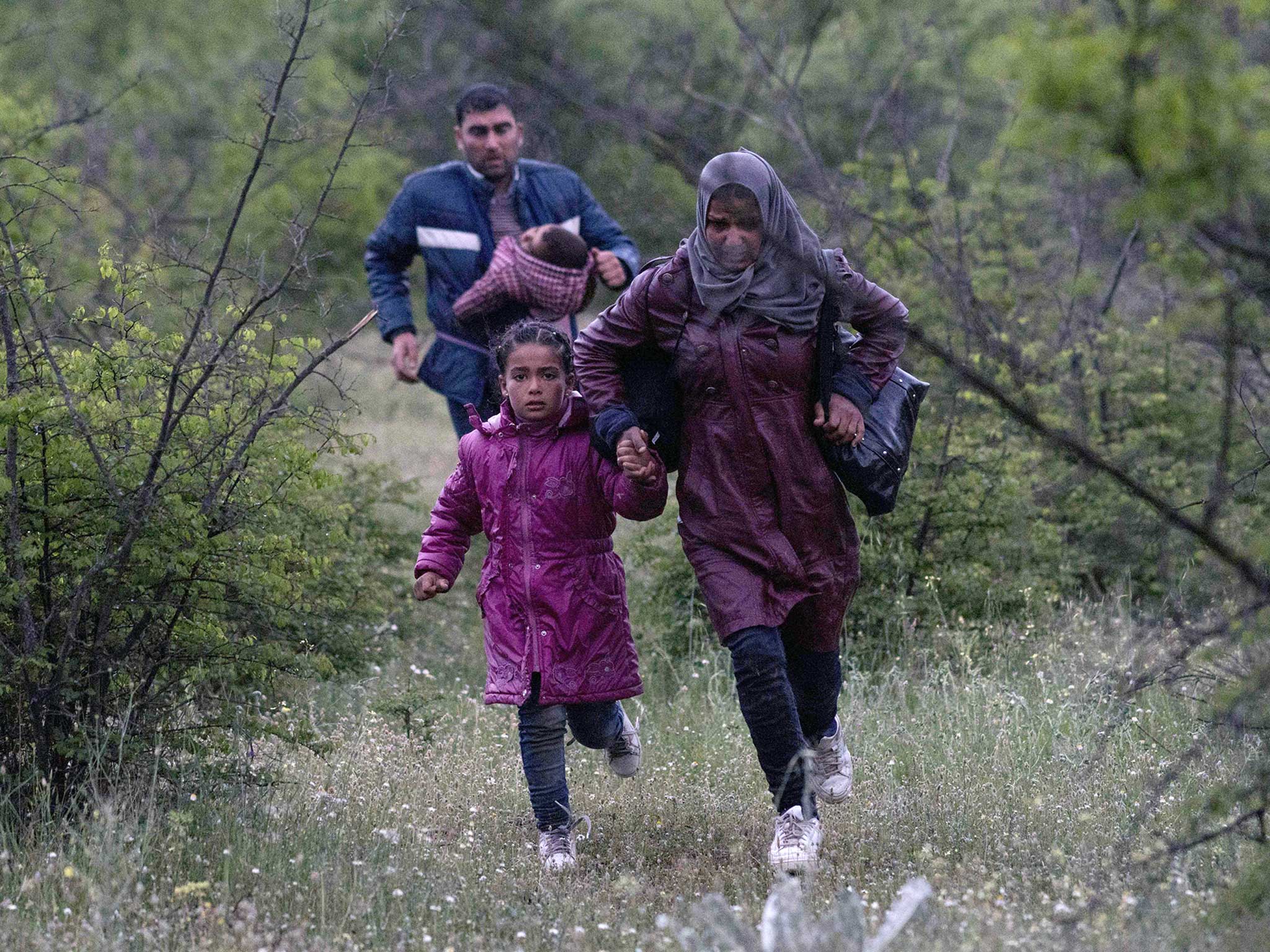There's only one group who benefits from the refugee crisis: human traffickers
As global leaders converge in Istanbul for the World Humanitarian Summit, it is imperative that a resolution is discussed to tackle the issue of slavery and human trafficking

Your support helps us to tell the story
From reproductive rights to climate change to Big Tech, The Independent is on the ground when the story is developing. Whether it's investigating the financials of Elon Musk's pro-Trump PAC or producing our latest documentary, 'The A Word', which shines a light on the American women fighting for reproductive rights, we know how important it is to parse out the facts from the messaging.
At such a critical moment in US history, we need reporters on the ground. Your donation allows us to keep sending journalists to speak to both sides of the story.
The Independent is trusted by Americans across the entire political spectrum. And unlike many other quality news outlets, we choose not to lock Americans out of our reporting and analysis with paywalls. We believe quality journalism should be available to everyone, paid for by those who can afford it.
Your support makes all the difference.This week global leaders met in Istanbul for the World Humanitarian Summit. Against a background of headlines reporting gangs taking advantage of the European migration crisis to force people into slavery, it is vital that we better incorporate protection measures against modern slavery and human trafficking into global humanitarian responses.
60 million people are now on the move, fleeing conflict and persecution – a record high. Separated from their economic and social support structures with limited ways to provide for their families, displaced people are highly susceptible to being deceived into exploitation by traffickers promising a better life. This vulnerability can arise overnight, in an instant, as a result of conflict escalation or after a natural disaster. These crisis situations are resulting in increased levels of human slavery across the world. Particularly vulnerable groups include unaccompanied minors and women and girls.
Yet anti-slavery efforts remain at the margins of humanitarian response efforts, and, even when present are very much reactive as opposed to embedded into emergency disaster relief responses.
Traffickers are agile, business minded and opportunistic. They will act quickly to ruthlessly profit on an increasing supply of vulnerable people. If counter trafficking efforts are not implemented as part of a pre-designed emergency response strategy, then the very lives these responses are trying to save are at risk of being lost to criminal gangs.
A response triggered by the presence of victims is a response too late. The donor community often want to see evidence of trafficking to justify funding an intervention. But modern slavery is often a hidden crime and such evidence is scarcely readily available let alone available in an adequate time frame for protective measures to be put in place.
Evidence can be drawn from global trends and risks can be anticipated and prepared for. The International Organisation for Migration has produced a detailed report on “Addressing human trafficking and exploitation in times of crisis”. The report found that crisis situations such as natural disasters, including the earthquakes in Nepal (2015) and Haiti (2010) and the Indian Ocean Tsunami (2010), and protracted conflict situations, including the wars in Iraq, Syria, Yemen, Libya, not only exacerbated existing vulnerabilities to slavery and human trafficking but also caused new forms to emerge.
The exploitation does not necessarily remain isolated to crisis zones and their surrounding regions. Some of the victims have ended up here in the United Kingdom. Last month the Home Secretary, Theresa May, asked police to investigate claims by newspapers that child survivors of the 2015 Nepal earthquake have been trafficked and sold to British families in the UK.
The protection measures needed against human trafficking in humanitarian responses do not have to cost vast sums of money. Small, targeted interventions and introducing anti-trafficking awareness into emergency relief programmes can go a long way.
An understanding of human trafficking risks should be incorporated into the training of emergency response workers. Trained safeguarding response teams should be rapidly deployed at border posts to identify and support vulnerable individuals at risk. Places where those in need may congregate, such as food banks, should be utilised to inform people of false employment offers and trafficking risks. Law enforcement and the military should be trained and ready to respond to the particularities of trafficking in crisis zones.
Ending modern slavery is now enshrined in the new United Nations’ Sustainable Development Goals, placing it firmly on the development agenda for the first time. Now, as global leaders meet at the World Humanitarian Summit, let’s make sure protecting freedom is on the humanitarian agenda and becomes as critical in our humanitarian aid response as food, water and shelter.
Kevin Hyland OBE is the UK Independent Anti-Slavery Commissioner
Join our commenting forum
Join thought-provoking conversations, follow other Independent readers and see their replies
Comments